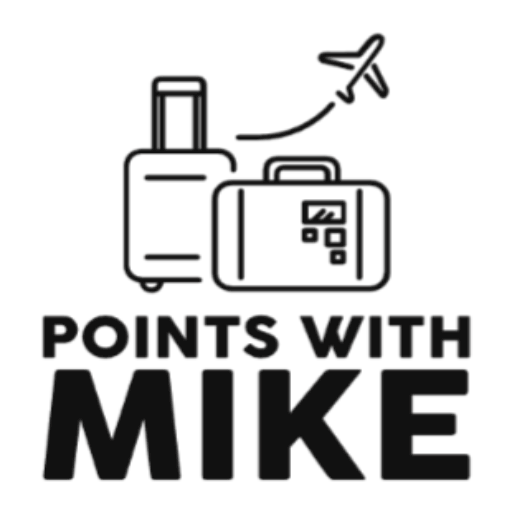I’ll be honest — I never thought I’d be the type to get excited about credit cards. But once I started booking flights and hotels with points instead of cash, I was hooked. From a business class seat to Europe to a free hotel night on a family trip, the value added up fast. Whether you’re a travel hacker in the making or just want to save money on your next getaway, the right Aeroplan credit cards can make a huge difference in how far your spending takes you.
But let’s face it — the Canadian credit card space is crowded. Between all the welcome bonuses, earn rates, annual fees, and perks like lounge access or free checked bags, it’s tough to know which card is actually right for you.
That’s where this guide comes in. I’ve rounded up the best Aeroplan credit cards in Canada for 2025 — whether you’re just starting out, ready to upgrade, or looking to fly in style (without paying like it). You’ll find options across entry-level, mid-tier, and premium tiers, including both co-branded cards and flexible points cards.
Let’s start with the basics — then we’ll dive into the cards.
How to Choose the Right Aeroplan Credit Card
Picking the best Aeroplan card comes down to knowing your travel habits, spending style, and how much you’re willing to pay in fees.
Travel Frequency:
If you fly less than once year, go with an entry-level card like the CIBC Aeroplan Visa, TD Aeroplan Platinum, or Amex Green. Fly once a year or more? Mid-tier cards like the TD or CIBC Visa Infinite offer better earn rates, free checked bags, and decent insurance. Frequent flyer or premium cabin traveler? Premium cards like the Amex Aeroplan Reserve or TD Infinite Privilege come with lounge access, priority perks, and help you earn Aeroplan Elite Status.
Spending Style:
Spend big on groceries or dining? The Amex Cobalt earns 5x points and transfers 1:1 to Aeroplan. For broader spending, Visa Infinite cards offer solid multipliers across gas, groceries, and Air Canada purchases — and premium cards add luxury perks.
Flexibility vs. Perks:
Want flexibility across programs? Choose transferable points cards like Amex Cobalt or Bonvoy Amex. If you’re loyal to Air Canada, a co-branded Aeroplan card can unlock perks like priority boarding, preferred pricing, and free bags.
Card Pairing Strategy:
Pairing cards can boost your value. For example:
- Amex Cobalt (for high everyday earning) + TD Aeroplan Visa Infinite (for Air Canada perks) or a premium Aeroplan card like the Amex Aeroplan Reserve
Fees vs. Benefits:
Ask yourself: will I actually use the benefits? If you check bags or enjoy lounges, a high-fee card could pay for itself. But if you’re a casual traveler, a no-fee or mid-tier card is a better bet.
Entry-Level Aeroplan Credit Cards (No or Low Fee)
If you’re just starting your Aeroplan journey or want to earn points without paying a hefty annual fee, these entry-level cards are a great way to dip your toes in. They offer solid value with no or low annual fees, basic earn rates, and occasional welcome bonuses — a great combination if you’re building credit or just getting into travel rewards. You’ll still earn points on everyday spending and get access to Aeroplan Flight Rewards, all without overcommitting.
That said, the perks are limited — you won’t get things like lounge access or free checked bags, and the insurance coverage is pretty minimal. Like most Canadian cards, these also charge a 2.5% foreign transaction fee, so they’re best suited for spending in Canadian dollars. Also, heads up: Aeroplan only allows you to earn the welcome bonus from one co-branded entry-level card per issuer. So if you pick up the TD Aeroplan Visa Platinum, don’t expect to grab another bonus from CIBC’s equivalent later or vice versa.
CIBC Aeroplan Visa Card
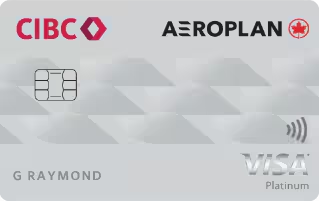
- Total Spend (tiered) $10,000 in 12 months → Earn 10,000 points
- You cannot earn this bonus if you have earned the bonus from the TD Aeroplan® Visa Infinite Card
- Annual fee: $0 (The only Co-branded Aeroplan card with no fee)
- Apply Here
This is the no-fuss, no-fee way to start collecting Aeroplan points. You’ll earn 1 point for every $1 you spend on eligible gas, electric vehicle charging, groceries, and Air Canada purchases (including Air Canada Vacations), and 1 point for every $1.50 on all other eligible purchases. It’s a solid starter card for students or anyone easing into the points world. It also comes with basic insurance, and it is the only card that gets you into the Aeroplan ecosystem without an annual fee. The bonus is often 10,000 Aeroplan points.
TD Aeroplan Visa Platinum Card
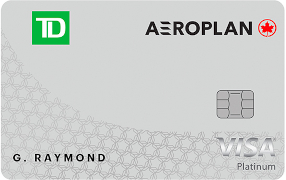
- Spend $1,000 in 90 days → Earn 20,000 points
- You cannot earn this bonus if you have earned the bonus from the CIBC Aeroplan® Visa* Card
- Annual fee: $89 (first year waived)
- If you don’t find ongoing value in the card, you can cancel it before the 24-month mark to avoid a second annual fee. You may be able to cancel the card shortly after the 12-month period and before the 13th month to get the $89 12-month waived, effectively not paying any annual fees.
- Apply Here
The TD Visa Platinum adds a touch of premium for a modest $89 annual fee — often waived in the first year. Like the CIBC version, it earns 1 Aeroplan point per $1 on eligible gas, EV charging, groceries, and Air Canada purchases, and 1 point per $1.50 elsewhere. You’ll usually get a welcome bonus of 20,000 Aeroplan points, which makes it a great low-commitment way to give Aeroplan a try while still earning meaningful rewards.
American Express Green Card (transfer partner)
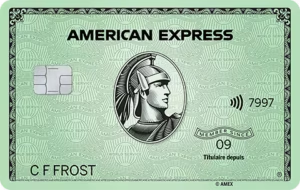
- Spend $1,000 in 3 months → Earn 10,000 points
- Points transfer 1:1 to Aeroplan
- $0 Annual Fee
- Apply Here
Don’t underestimate this underdog. While it doesn’t earn Aeroplan points directly, it earns Amex Membership Rewards (MR) points, which can be transferred to Aeroplan 1:1. It has no annual fee and its flexibility make it a great first card for points hobbyists. Signup bonus is usually 10,000 Amex MR points.
Who Should Get These?
These cards are best if you’re new to credit or new to travel rewards. They’re also good for students, casual flyers, and anyone just looking to get their feet wet without overcommitting.
Best Mid-Tier Aeroplan Credit Cards (Great Value & Benefits)
If you’re ready to level up from the basic cards, the mid-tier Aeroplan Credit Card options are where the value really starts to kick in. These cards typically come with annual fees in the $120–$150 range — and in my opinion, the extra cost is well worth it. You get better earn rates on common spending categories like gas, groceries, and Air Canada purchases, plus much stronger welcome bonuses that can often offset the annual fee entirely (and then some).
This tier also introduces meaningful travel perks like a free checked bag on Air Canada flights, decent travel insurance, and the ability to earn toward Aeroplan Elite Status. The downsides? The annual fee means you’ll want to make sure you’re actually using the card’s benefits, and some of the extra perks (like lounge access or priority treatment) are still locked behind premium-tier cards. But if you fly once or twice a year and want to earn points faster without going all-in on fees, these cards offer the best balance of value and benefits.
TD Aeroplan Visa Infinite
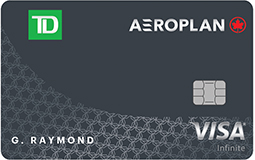
- Spend $12,000 total in 12 months → Earn 52,000 points (40,000 bonus + 12,000 from spending)
- You cannot earn the bonus from this card if you have earned the bonus from the CIBC Aeroplan® Visa Infinite* Card
- Breakdown: $7,500 in first 6 months + $4,500 total in the next 6 months (total of $12,000 in 12 months)
- Annual fee: $139 (often waived Year 1)
- Includes free checked bags for up to 8 passengers on Air Canada flights
- If you don’t see long-term value in the card, consider cancelling before the 24-month mark to avoid paying a second annual fee
- Apply Here
This is my daily driver — and for good reason. With a $139 annual fee that’s often waived in the first year, it offers excellent value. The welcome bonus typically ranges from 40,000 to 50,000 Aeroplan points, which can easily cover a roundtrip within North America.
You’ll earn 1.5 points per $1 on gas, groceries, and Air Canada purchases, and 1 point per $1 on everything else — solid earn rates for everyday spending. One standout perk is the free first checked bag for you and up to eight companions on the same Air Canada booking, which can save hundreds per year.
While it doesn’t include lounge access or status boosts, it comes with strong travel insurance and practical perks that make it a great all-around card if you fly even once a year.
CIBC Aeroplan Visa Infinite
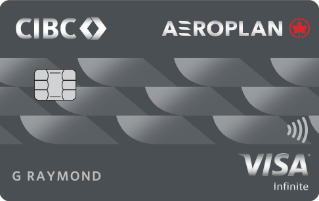
The CIBC Aeroplan Visa Infinite is a solid mid-tier option with similar benefits to TD’s version, but a slightly different welcome bonus structure. The $139 annual fee is often waived in the first year, and the total bonus usually adds up to around 45,000 Aeroplan points, split between your first purchase, hitting a spend threshold, and an anniversary bonus.
You earn 1.5 points per $1 on gas, groceries, EV charging, and Air Canada purchases, and 1 point per $1 on everything else. You also get a free first checked bag for you and up to eight companions on the same Air Canada booking — a perk that can save real money fast.
It includes comprehensive travel insurance, preferred pricing on flight rewards, and Visa Infinite extras like hotel and dining perks. If you already bank with CIBC, this card makes it easy to keep things streamlined while still earning valuable Aeroplan points.
American Express Aeroplan Card
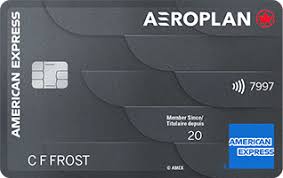
The American Express Aeroplan Card is a strong mid-tier pick with one of the best welcome bonuses in this category, especially considering the lower spend requirement. For a $120 annual fee, you can earn up to 40,000 Aeroplan points — 30,000 after spending $3,000 in the first three months, and another 10,000 when you spend $1,000 in month 13.
It earns 2 points per $1 on Air Canada and Air Canada Vacations, 1.5 points per $1 on dining and food delivery in Canada, and 1 point per $1 on everything else. That makes it a great everyday card if you spend heavily on dining and travel.
Perks include a free first checked bag for you and up to eight companions on Air Canada flights, preferred pricing on flight rewards, and access to Amex Experiences, plus priority perks at Toronto Pearson like valet service and expedited security. It doesn’t include lounge access, but for the fee, the earn rates and bonus make this one of the most rewarding mid-tier Aeroplan options.
Mid-Tier Aeroplan Credit Card Comparison (2025)
When it comes to mid-tier Aeroplan credit cards, the core perks are mostly the same — you’ll get a free checked bag on Air Canada flights, preferred pricing on flight rewards, and solid travel insurance across the board. The real differences lie in the welcome bonus structure, minimum spend requirements (MSR), earn rates, and annual fee waivers. TD and CIBC both waive the first year’s fee, but come with higher MSRs and income requirements. The American Express Aeroplan Card, on the other hand, has a lower MSR and no formal income threshold, making it more accessible — though the first annual fee isn’t typically waived. Like most Canadian travel cards, all three also charge a 2.5% foreign transaction fee. Here’s how the numbers compare.
| Feature | TD® Aeroplan® Visa Infinite Card* | CIBC Aeroplan® Visa Infinite Card* | American Express® Aeroplan® Card |
| Annual Fee | $139 (waived first year) | $139 (waived first year) | $120 (not typically waived in the first year) |
| Welcome Bonus | Up to 40,000 Aeroplan points | Up to 45,000 Aeroplan points | Up to 40,000 Aeroplan points |
| Welcome Bonus Minimum Spend Requirement (MSR) | $7,500 in 180 days + $12,000 in 12 months for full bonus | $5,000 in 4 months + $15,000 in 12 months for full bonus | $3,000 in 3 months + $1,000 in month 13 for full bonus |
| Earn Rates | 1.5x on gas, groceries, EV charging, and Air Canada | 1.5x on gas, groceries, EV charging, and Air Canada | 2x on Air Canada |
| 1x on all other purchases | 1x on all other purchases | 1.5x on dining and food delivery | |
| 1x on everything else | |||
| Income Requirement | $60,000 personal / $100,000 household | $60,000 personal / $100,000 household | None specified |
Who Should Get These?
If you fly a few times a year — even just once or twice — and want some extra comfort and savings without diving into the $600+ premium card tier, these mid-level Aeroplan cards are a great fit. You’ll skip checked bag fees, earn points faster on everyday spending, and get access to strong travel insurance that can save you hundreds if something goes sideways. While they don’t come with lounge access or elite status perks, they still pack a lot of value into a modest annual fee — especially with first-year waivers and generous welcome bonuses. They’re ideal for travelers who want meaningful rewards and solid perks without overcommitting.
Premium Aeroplan Credit Cards (Luxury & Elite Perks)
If you’re seeking top-tier travel perks, the premium Aeroplan credit cards are your gateway to luxury. These cards offer benefits like unlimited Maple Leaf Lounge access, priority airport services, and accelerated Aeroplan point earnings. However, they come with higher annual fees and income requirements. Let’s delve into the details of each card to help you determine which aligns best with your travel aspirations.
American Express® Aeroplan®* Reserve Card
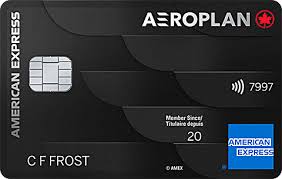
The American Express Aeroplan Reserve Card is designed for frequent Air Canada travelers who value premium perks. Cardholders earn 3 points per dollar on direct Air Canada purchases, 2 on dining and food delivery in Canada, and 1.25 on all other purchases. Benefits include Maple Leaf Lounge access, priority airport services, and a free first checked bag for the cardholder and up to eight companions on Air Canada flights. Spend $25,000 annually to receive a Worldwide Companion Pass, plus get a $100 NEXUS fee rebate every four years. The annual fee is $599, with no specified income requirement.
TD® Aeroplan® Visa Infinite Privilege Card
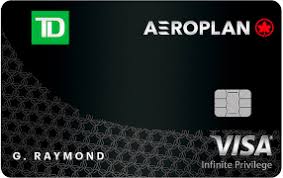
The TD Aeroplan Visa Infinite Privilege Card offers a robust suite of travel benefits. Cardholders earn 2 Aeroplan points per dollar on Air Canada purchases, 1.5 on gas, grocery, travel, and dining, and 1.25 on all other purchases. Perks include Maple Leaf Lounge access, priority airport services, and a free first checked bag for the cardholder and up to eight companions on Air Canada flights. For every $5,000 spent, cardholders earn 1,000 Status Qualifying Miles (SQM) and 1 Status Qualifying Segment (SQS). The card also includes a $100 NEXUS fee rebate every four years. The annual fee is $599, with an income requirement.
CIBC Aeroplan® Visa Infinite Privilege* Card
The CIBC Aeroplan Visa Infinite Privilege Card mirrors many benefits of its TD counterpart. Cardholders earn 2 Aeroplan points per dollar on direct Air Canada purchases, 1.5 on gas, grocery, travel, and dining, and 1.25 on all other purchases. Benefits include Maple Leaf Lounge access, priority airport services, and a free first checked bag for the cardholder and up to eight companions on Air Canada flights. Like the TD card, it offers 1,000 SQM and 1 SQS for every $5,000 spent, plus a $100 NEXUS fee rebate every four years. The annual fee is $599, with a household income requirement of $200,000.
Premium Aeroplan Card Comparison
If you’re looking for top-tier travel perks, all three of these premium Aeroplan cards deliver the essentials: unlimited Maple Leaf Lounge access, priority airport services, a free checked bag for you and up to eight companions, and comprehensive travel insurance. They also offer the ability to earn Status Qualifying Miles (SQM) and Segments (SQS) toward Aeroplan Elite Status, plus a $100 NEXUS application fee rebate every 4 years.
One important thing to note: all three charge a 2.5% foreign transaction fee, so if you make a lot of purchases in other currencies, that’s something to factor in. The main differences lie in the earn rates, minimum income requirements, and extra perks like the Worldwide Companion Pass offered exclusively by American Express. The Amex card is also the only one without a stated income requirement, making it more accessible for high spenders who don’t meet the $200,000 household income needed for the TD and CIBC cards.
| Feature | Amex Aeroplan Reserve | TD Aeroplan Visa Infinite Privilege | CIBC Aeroplan Visa Infinite Privilege |
| Annual Fee | $599 | $599 | $599 |
| Welcome Bonus | Up to 90,000 points (varies by offer) | Up to 90,000 points (varies by offer) | Up to 90,000 points (varies by offer) |
| Earn Rates | 3x on Air Canada | 2x on Air Canada | 2x on Air Canada |
| 2x on dining & food delivery | 1.5x on gas, grocery, travel, dining | 1.5x on gas, grocery, travel, dining | |
| 1.25x on other | 1.25x on other | 1.25x on other | |
| Welcome Bonus Minimum Spend Requirement (MSR) | $7,500 in first 3 months + $2,500 in month 13 | Total of $24,000 within 12 months | Total of $25,000 within 12 months |
| Additional Perks | Worldwide Companion Pass at $25K spend | NEXUS rebate | NEXUS rebate |
| Income Requirement | None stated | $200,000 household | $200,000 household |
Who Should Get These?
I’ll be upfront — I don’t personally hold any of these premium Aeroplan cards. For me, the welcome bonuses and perks haven’t justified the high annual fees, especially since I don’t fly Air Canada often enough to make the most of the benefits.
That said, if you fly Air Canada frequently — especially in business or premium economy — the perks like lounge access, priority services, and status boosts can absolutely make these cards worth it. It really comes down to how often you travel and how much you value a smoother, more elevated airport and in-flight experience.
Best Transferable Points Cards for Aeroplan
If you’re not tied to a co-branded Aeroplan card and want more flexibility — or just want to supercharge your everyday earning — transferable points cards can be a smarter long-term play. These cards earn Amex Membership Rewards (MR) or Marriott Bonvoy points, both of which can be transferred to Aeroplan. They often outperform co-branded cards when it comes to earn rates in everyday spending categories.
American Express Cobalt

Arguably the best travel rewards card in Canada, the Amex Cobalt earns 5x points on dining and groceries, making it ideal for families, foodies, or anyone who spends heavily in these categories. These are MR Select points, but they can still be transferred 1:1 to Aeroplan — making the Cobalt the highest Aeroplan-equivalent earn rate card in Canada.
If you spend $1,000/month on dining and groceries, that’s 60,000 points per year — easily enough for a roundtrip economy flight to Europe or even a one-way in business class if you redeem smart. For more strategies like this, check out my full guide on Amex MR cards in Canada.
Marriott Bonvoy Amex Card

- Best offer is through a referral link like the one below
- Instant Silver Elite Status
- Spend $3,000 in 3 months → Earn 58,000 points
- Free night certificate every year up to 35,000 points starting on the first anniversary (~$350 value)
- Annual fee: $120
- Apply Here
This one’s great for hotel loyalists. You’ll earn 5x Bonvoy points on Marriott stays and 2x on everything else. Bonvoy points transfer to Aeroplan at a 3:1 ratio, and you get a 5,000-point bonus when you transfer 60,000 Bonvoy points — meaning 60,000 Bonvoy = 25,000 Aeroplan points. It’s not the fastest way to rack up Aeroplan, but if you’re already earning Bonvoy points through hotel stays, it’s a valuable side strategy. For more tips, read my post on Hotel Savings with Amex Bonvoy Cards.
How to Transfer Amex MR and Bonvoy to Aeroplan
It’s easy. For Amex, log in to your account, go to “Transfer Points,” select Aeroplan, and confirm. Transfers are typically instant. For Bonvoy, log in to your account, go to “Redeem Points,” select “Transfer to Travel Partner,” and choose Aeroplan — allow a few days for processing.
When to Use These Instead of Co-Branded Cards
If you want flexibility, or your spending skews heavily toward food, groceries, or Marriott hotels, these cards can outperform Aeroplan-branded cards over time. The Cobalt, especially, is a beast for everyday spend and arguably the most powerful Aeroplan-earning tool in your wallet — even if it doesn’t say “Aeroplan” on the front.
Chase Aeroplan Card: A U.S. Powerhouse for Aeroplan Collectors
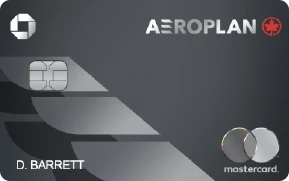
The Chase Aeroplan® Card is a U.S. credit card, but if you’re a dual citizen, frequent U.S. traveler, or have a U.S. credit file, it’s one of the best Aeroplan earners available. The welcome bonus is usually 70,000 Aeroplan points — higher than what you’ll typically find with credit cards in Canada.
One of the card’s standout perks is automatic Aeroplan 25K Status. When you open the card, you’re granted 25K Status for the remainder of the calendar year and the entire following year. To retain 25K in subsequent years, you simply need to spend $15,000 USD annually on the card. This is arguably the easiest path to earning Aeroplan Elite Status if you don’t fly often — no need to chase segments or dollars spent on airfare.
Other benefits include Maple Leaf Lounge access when flying on Aeroplan economy reward tickets and no foreign transaction fees — a major advantage for international travelers. If you’re looking to explore U.S. card options as a Canadian, check out Frugal Flyer’s guide to U.S. credit cards for Canadians to get started.
Which Aeroplan Card is Right for You?
By now, you’ve seen there’s no one-size-fits-all Aeroplan card — and that’s kind of the point. The right card depends on your budget, how often you travel, and where your everyday spending happens. Whether you’re just getting started or already deep in the weeds with multiple cards (guilty), there’s a setup that can work for you.
Entry-level cards are perfect for those who want to dip their toes into Aeroplan without a high annual fee. They’re ideal if you’re just starting out, or if you don’t travel often enough to take advantage of perks like free checked bags or lounge access. That said, the welcome bonuses alone can be worth it, even if you only plan to use the card for a few months and then downgrade or cancel.
Mid-tier cards are the sweet spot for most Canadians. If you fly a few times a year, especially with a partner or family, the free checked bag perk alone can offset the annual fee — not to mention the higher earn rates and travel insurance. These cards offer a good balance between benefits and cost, and they’re often the best long-term option for people who want to earn points consistently.
Premium cards, on the other hand, come with a steep annual fee — usually $599 — and are only worth it if you fly frequently enough to make use of the perks like Maple Leaf Lounge access, priority services, and elite status boosts. If you’re not traveling multiple times per year with Air Canada, it’s hard to justify the cost — which is why I personally don’t carry one.
Ultimately, the best Aeroplan card is the one that helps you earn the most points without overpaying for perks you won’t use. Pick the card that fits your lifestyle now — you can always upgrade (or downgrade) later.
If you’re a maximizer, the power move is combining cards. A setup like the Amex Cobalt (for 5x on groceries and dining) paired with a mid-tier co-branded card like the TD Aeroplan Visa Infinite gives you both everyday earning strength and practical Air Canada perks like a free checked bag.
Can You Have More Than One Aeroplan Card?
Yes — and I do. At the time of writing, I carry two co-branded Aeroplan cards (one mid-tier, one entry-levevl) and three Amex MR-earning cards, all of which feed into my Aeroplan balance one way or another.
The key thing to know is this: you can only receive a welcome bonus once per Aeroplan card category (entry, mid, or premium) per issuer. So if you sign up for a TD Aeroplan Visa Infinite, you won’t get another mid-tier bonus later from CIBC — at least not until there’s a product refresh or a significant time gap.
That said, all points earned across cards funnel into the same Aeroplan account, so you’re free to build a stack of cards that complement each other. Just keep an eye on cumulative annual fees and whether you’re fully using the perks — otherwise, it’s easy to end up with overlapping benefits and diminishing returns.
Final Thoughts
You don’t need to be a frequent flyer to get serious value from an Aeroplan credit card. In fact, welcome bonuses and everyday spending are the fastest ways to grow your points balance — often adding up to tens of thousands of points without ever stepping on a plane.
And when you redeem those points for high-value flights, especially in business class or with Air Canada’s partner airlines, the return can easily beat most cash back cards. Of course, that value only comes if you actually use the points — so the key is being intentional about your redemptions.
Whether you’re earning toward a dream trip or just trying to save a little on your next vacation, picking the right Aeroplan card can be a smart move — as long as it fits your lifestyle and travel goals
FAQ: Aeroplan Credit Cards in Canada
Do Aeroplan points expire?
Yes — Aeroplan points expire if your account is inactive for 18 consecutive months. But staying active is easy. Just earning or redeeming a single point — whether through credit card spend, shopping through the Aeroplan eStore, or booking a flight — will reset the clock.
What credit score do I need for an Aeroplan credit card?
For mid-tier cards like the TD or CIBC Aeroplan Visa Infinite, a credit score around 660+ is typically enough. For premium cards like the Amex Aeroplan Reserve or Visa Infinite Privilege cards, aim for 740+ along with solid income and credit history to boost your chances of approval.
Can I earn Elite Status with an Aeroplan credit card?
Yes — several Aeroplan credit cards help you earn Aeroplan Elite Status through everyday spending. Most premium cards in Canada, like the Amex Aeroplan Reserve or TD Infinite Privilege, let you earn 1,000 Status Qualifying Miles (SQMs) and 1 Status Qualifying Segment (SQS) for every $5,000 spent. This can help you reach or maintain status even if you’re not flying frequently.
The Chase Aeroplan Card in the U.S. goes a step further: you get instant 25K Elite Status for the remainder of the year and the following year after you meet a modest spend threshold. It’s one of the fastest ways to start with status benefits like priority check-in and early boarding — no flights required.
Which Aeroplan cards offer free checked bags?
All mid-tier and premium co-branded Aeroplan cards from TD, CIBC, and Amex include a free first checked bag on Air Canada flights — not just for you, but also for up to eight travel companions on the same reservation.
Which cards come with Maple Leaf Lounge access?
Only premium Aeroplan cards offer lounge access. The Amex Aeroplan Reserve, TD Aeroplan Visa Infinite Privilege, and CIBC Aeroplan Visa Infinite Privilege all include unlimited access to Maple Leaf Lounges within North America when flying Air Canada.
Can I transfer points between Aeroplan and other programs?
You can transfer points into Aeroplan from partners like American Express Membership Rewards and Marriott Bonvoy. But you can’t transfer Aeroplan points out to another loyalty program — once they’re in, they stay in.
Are Aeroplan credit cards worth it if I don’t fly Air Canada often?
If you fly Air Canada even once or twice a year, yes — perks like a free checked bag or preferred pricing can easily offset the annual fee. If you rarely fly Air Canada, you may get more value from a flexible points card like the Amex Cobalt, which still lets you convert points to Aeroplan when you need to.
What happens to my Aeroplan points if I cancel my credit card?
The good news is your points are safe — Aeroplan points live in your Aeroplan account, not your credit card. You won’t lose your points if you cancel your card, but you will lose any perks that came with the card, like free checked bags or status boosts.
What are the income requirements for premium Aeroplan cards?
For the Visa Infinite Privilege cards from TD and CIBC, expect a minimum household income requirement of $200,000. The Amex Aeroplan Reserve, however, does not list a formal income requirement, though approval is still based on creditworthiness and overall financial profile.
Do all Aeroplan cards come with travel insurance?
All mid-tier and premium Aeroplan cards include strong travel insurance — usually covering trip cancellation, interruption, emergency medical, flight delays, and baggage loss. Entry-level cards may include limited or no coverage, so check the fine print if that’s important to you.
Is there an Aeroplan credit card for small business owners?
Yes — there are a few solid Aeroplan options designed specifically for small business owners in Canada. The American Express Aeroplan Business Reserve Card is the flagship co-branded business card, offering high earn rates on Air Canada purchases, strong travel perks, and the ability to earn Status Qualifying Miles (SQMs) through spend.
CIBC and TD also offer business versions of their Aeroplan cards: the CIBC Aeroplan Visa Business Card and the TD Aeroplan Visa Business Card. These come with lower annual fees and more basic perks compared to the Amex Business Reserve, but still allow you to earn Aeroplan points on business expenses and access a free checked bag on Air Canada flights.
If you want flexibility, you can also consider cards like the Amex Business Gold or Amex Business Platinum, which earn Membership Rewards points that transfer 1:1 to Aeroplan — great if you want to keep your redemption options open beyond just Air Canada.
Ready to dive deeper into Aeroplan?
Check out my Beginner’s Guide to Aeroplan Points if you’re just getting started, or learn How to Earn Aeroplan Points Fast to supercharge your points balance and book your next trip sooner.
